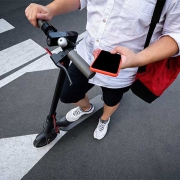How to make your cell phone untraceable?
Today’s cell phone users are faced with an ever-increasing problem. It is about the respect of privacy. The scandals concerning large-scale telephone surveillance by the NSA (revealed by Edward Snowden) and other intelligence services have caused controversy in recent years, forcing users to look for ways to secure their personal data. In this article, we give you some tips on how to make your mobile device untraceable.
#1 Stop allowing mobile applications to access your location
Your itinerary, your movements, your position are personal. Almost all applications require, before or after installation, an authorization for access to your location. Very often and without reading the entire request, everyone grants it; this helps trace your movements, whereas many of them work well without this feature. The ideal way to make your phone untraceable would therefore be to disable location sharing. This is the basis for untraceability. Why would a photo collage or translation application need your location?
#2 Disable GPS and your cell phone’s unique identifier
To not be tracked, you can also make it easier and disable GPS on your phone from your settings or dedicated applications. By scanning the screen of your smartphone from top to bottom, you will see a list of options. One of them is called “Location” (for the most advanced smartphones) or “GPS” (for older generations of smartphones); turn it off if you intend to make really personal, even intimate trips.
The unique identifier of your mobile phone is also favourable for tracking it. It is a unique series of numbers created by your device and transferred to advertisers and application authors. Your searches and publications on the web are linked to this identifier. This activity on the Net is generally associated with your geolocation information which, once transmitted to companies, allows them to have knowledge of your browsing history. If you are using an Apple Smartphone, go to the “Settings” menu, then “Privacy”; then go to “Advertising” to activate the “Limited ad tracking” option.
If you’re an Android phone, go to “Settings”, then “Google”; “Advertising”, then “Disable ad personalization”, and that’s it.
#3 Don’t let Google store your location data
Google is the mastodon of geolocation. And to use an Android phone, you need a Google account. This account is a highly exploited channel that stores a wealth of data from the location linked to your phone. You have the option to stop this collection of your data through the “Data and customization” option of your interface. This not only allows you to put the history of your various locations on standby, but also to avoid possible problems of overheating of your phone.
In addition to these three tips, you can also
- Turn off your smartphone (then remove the battery) and use during your important trips models of phones without GPS chip: a Nokia 8210 or a Nokia 3310 for example;
- Install a private VPN and configure it as explained here, in order to bypass online monitoring systems;
- Install Smartphone ROMs to report fictitious positions and bypass some tracking programs.


